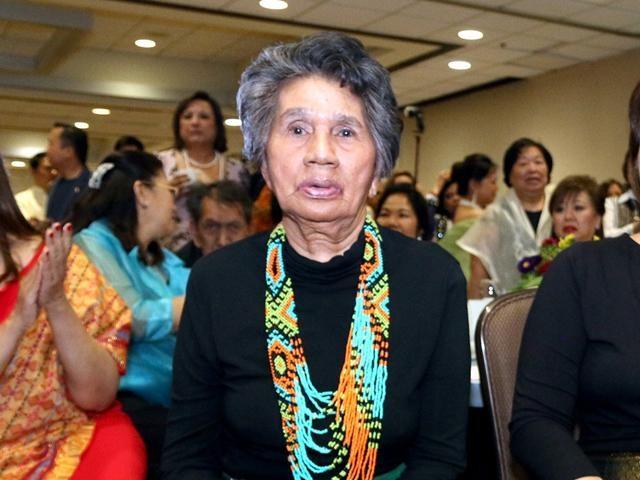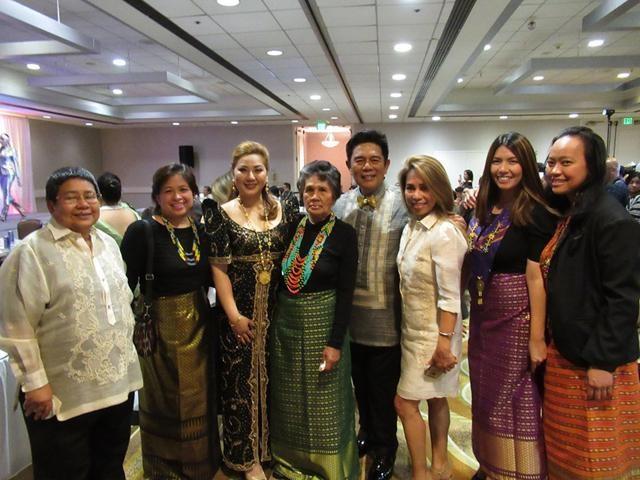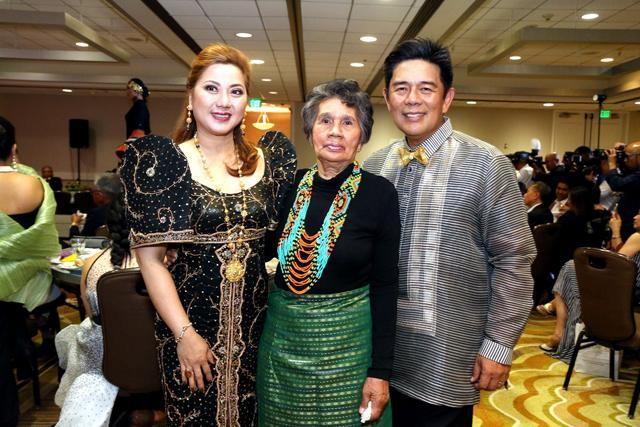After decades of slavery in US, Filipina tastes freedom at 82
After being a “family slave” in the US for more than three decades, a Filipino woman is now free to live her life to the fullest at the age of 82.
Nanay Fedelina hails from Tacloban, Leyte. She was reportedly brought to the States on a tourist visa sometime in 1981 but ended up working for generations of the family that enslaved her for 37 years. And like salves of the olden days, she was not paid her salary and her food provision was not decently enough.



Authorities only knew that Nanay Fedelina was a victim of human trafficking last year, when she collapsed while taking care of her employer in a hospital.
Concerned staff at the hospital notified the FBI, and it turned out that the elderly woman had “not eaten for at least two days.”
An FBI investigation also revealed that she had been subjected to forced labor and was even serving her employer’s extended family.
“They found out that Nanay Fedelina was working for the family and the extended family in various capacities,” Consul General Adel Cruz told GMA News Online in a phone interview.
“So hindi lang yung matanda ‘yung inaalagaan niya kundi pati ‘yung anak, pati ‘yung mga anak ng anak. So pati extended family, she started working and caring for them,” he added.
The FBI coordinated for an operation to rescue Fedelina from her employer’s home last May 2018 with the help of an organization called the Pilipino Workers Center (PWC).
With her family still unknown and her stay in the US undocumented, the senior was placed in the care of a facility in Los Angeles, which was willing to provide her with all her daily needs.
“When PWC identified a home care facility for her, the owners of that health care facility was informed about Fedelina's ordeal. They offered to give her free board and lodging for as long as she lives,” Cruz said.
No documents
Fedelina’s employer had confiscated her passport, and her tourist visa had long been expired.
The Philippine Consulate in Los Angeles learned from a series of interviews that her full name was Fedelina Lugasan.
She was reportedly born on the 4th of July, which is the day Americans celebrate their independence.
Fedelina apparently spent most of her days serving other families.
She reportedly left Leyte at 16 to work as a domestic helper for a family in Manila before being brought to the US some time in 1981.
Authorities tried looking for relatives after her rescue, but luck was not their side, so far.
Fedelina could not identify her family members except a certain Luz Lugasan, who is reportedly her niece.
“We’re faced with a blank wall,” said Cruz.
“We don’t have the means of contacting a relative in the Philippines because all she gave us was a name. She doesn’t even know where the person lives.”
Nevertheless, the Consul General said they are planning to tap local government units to help find Fedelina’s family in the Philippines.
She already met with Philippine Ambassador to the US Jose Manuel Romualdez this month.
“The Ambassador, who also hails from Leyte, said he would coordinate with the appropriate local government officials to try to find her relatives as well,” Cruz said.
No charges
Fedelina’s employer pleaded guilty to forced labor, Cruz said.
But the elderly woman had no intention of sending her employer to prison, even as this person deprived her of freedom for so many years.
“It’s poetic justice,” Cruz said.
“The judge wanted to put the old employer behind bars but the old employer is just two years younger than her, Nanay Fedelina requested otherwise, that she would not be jailed.”
In fact, the 82-year-old did not want to file charges against her employer’s daughter or any member of any family she served, Cruz said.
The elderly employer ended up facing probation in an assisted living facility and paid Fedelina $101,000 in restitution.
Human trafficking
According to Cruz, the Philippine Consulate in the City of Los Angeles has never seen a case of modern-day slavery as “grave” as Fedelina’s.
“Being made a slave for 37 years, that’s a lifetime already,” Cruz said.
“For us, this is one very emotional case because, at this day and age, especially here in the United States, you wouldn’t even think that there would be people who would do this,” he added.
Cruz said Fedelina's case helped awaken a new sense awareness on human trafficking victims, not only among Philippine officials in Los Angeles, but in terms of coordination with groups and law enforcement in California, as well.
“The Philippine Consulate has been undertaking several anti-human trafficking forums. We are in coordination with a lot of Filipino-American organizations, a lot of Asian-American orgs also supporting anti-human trafficking,” said Cruz.
“We have had members of Los Angeles police and other Los Angeles California authorities speak and share the city and the state of California’s programs on how to identify, save and protect human trafficking victims,” he added.
The Consul General also reminded those hoping to work in a foreign country to make sure they do it right with proper documentation.
"I would just like to warn our kababayans not to blindly believe in promises especially if it's too good and, should they wish to seek employment abroad, make sure that they go through the Philippine Overseas Employment Administration so they become documented workers," Cruz said.
He added, "Make sure that they register at the Overseas Workers Welfare Administration so they would know their benefits and make sure that, wherever they go, they should remember the address and contact number of the nearest Philippine Consulate where they could go." —LBG/RSJ, GMA News




